Indoor cycling helps you perform a 60-minute session on the turbo very efficiently.
There’s no need to spend ages layering up for winter riding and cleaning your bike afterwards.
Another of the benefits of indoor cycling is there’s no unwanted stopping or starting. Therefore, an hour is ample time to do a quality workout.
Matt Clinton, the founder of Clinterval Coaching, has recommended four 60-minute turbo sessions that fit the bill.
These turbo sessions are short, but demanding. So don't forget to have indoor cycling accessories, such as hydration and a sweat towel, at hand and consider using a fan to keep your indoor training space cool.
Four 60-minute turbo sessions to train effectively and efficiently
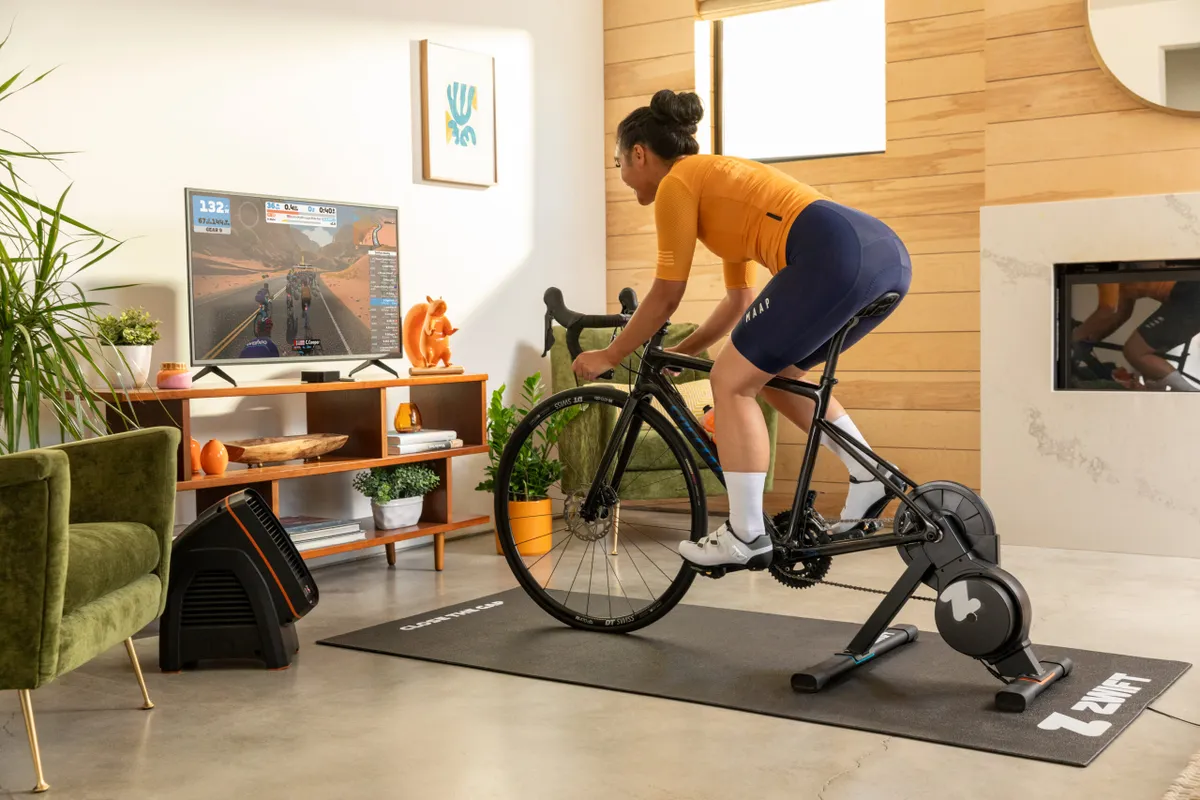
Training zones
| Zone | Name | Heart rate (% of threshold HR) | Power (% of threshold power) | Typical duration |
|---|---|---|---|---|
| 1 | Active recovery | Less than 68% | Less than 55% | n/a |
| 2 | Endurance | 69-83% | 56-75% | 3+ hours |
| 3 | Tempo / Sweetspot | 84-94% | 76-90% | 20 mins to 1 hour |
| 4 | Threshold | 95-105% | 91-105% | 10 to 30 mins |
| 5 | VO2 max | More than 106% | 106-120% | 3 to 8 mins |
| 6 | Anaerobic capacity | n/a | More than 121% | 30 seconds to 3 mins |
To get the most out of these sessions, you need to ride them at the right intensity.
So if you don’t already know your Critical Power or Functional Threshold Power, you need to work out your training zones.
The best indoor cycling apps have in-built fitness tests to help you calculate them.
You should be able to train with power indoors. The best smart trainers and indoor bikes have integrated power meters with high levels of accuracy.
If yours doesn’t though, ride to heart rate and/or rating of perceived exertion (RPE).
1. Hit the sweetspot
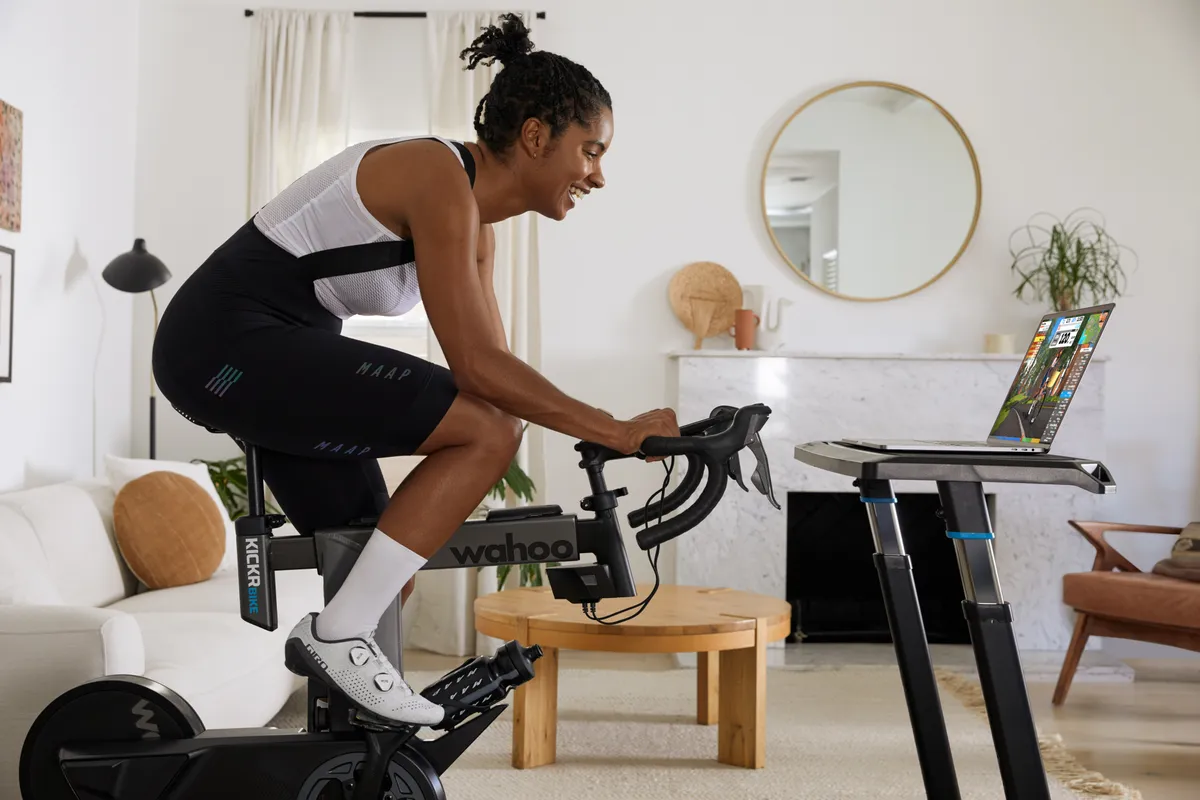
The first session Clinton recommends sees you spend 30 minutes riding at sweetspot. This effort level is 88 to 93 per cent of FTP, 75 to 83 per cent of maximum heart rate or 5-6/10 RPE.
Sweetspot training delivers a lot of bang for your buck, simultaneously giving you some of the benefits of longer, easier riding and harder intervals.
This makes it a good way for riders targeting sportives to improve their cycling endurance in a relatively low-volume training plan.
Although sweetspot doesn’t feel that hard, a polarised or pyramidal training plan will limit such sessions to two to three a week to prevent overtraining.
- Warm up with 15 minutes’ zone 1-2 spinning
- Do 2x 15-minute intervals at sweetspot with 10 minutes’ zone 1 recovery in between
- Cool down with 5-10 minutes of easy spinning
2. Max out
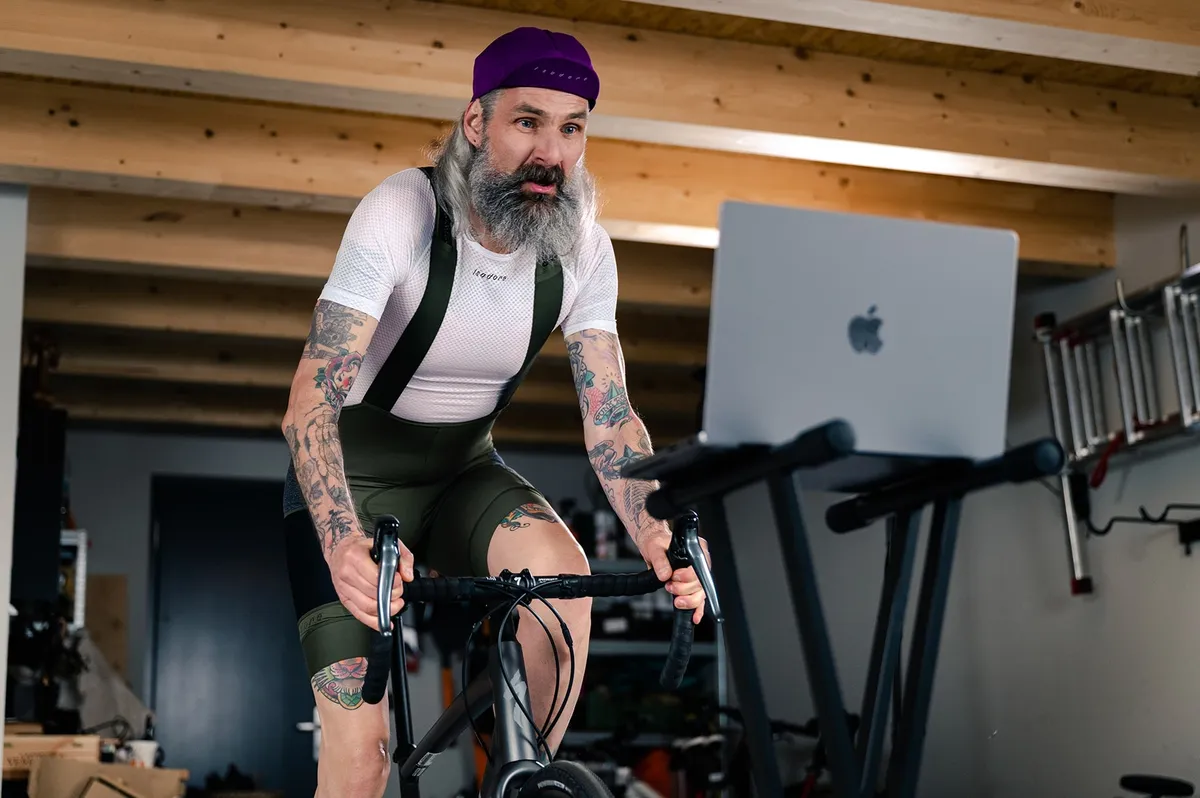
The second session involves classic VO2 max intervals aimed at increasing the amount of oxygen your body can use during an all-out, sustained effort.
Raising your VO2 max will improve your climbing and help you recover quicker from hard surges, which is useful in Zwift racing.
VO2 max intervals are performed above 103 per cent FTP, 90 per cent maximum heart rate and 8-9/10 RPE.
- Warm up with 15 minutes zone 1-2 spinning
- Do 4x 3 minutes at VO2 max with 7 minutes’ zone 1 recovery in between
- Cool down with 15 minutes' easy riding
3. On-off
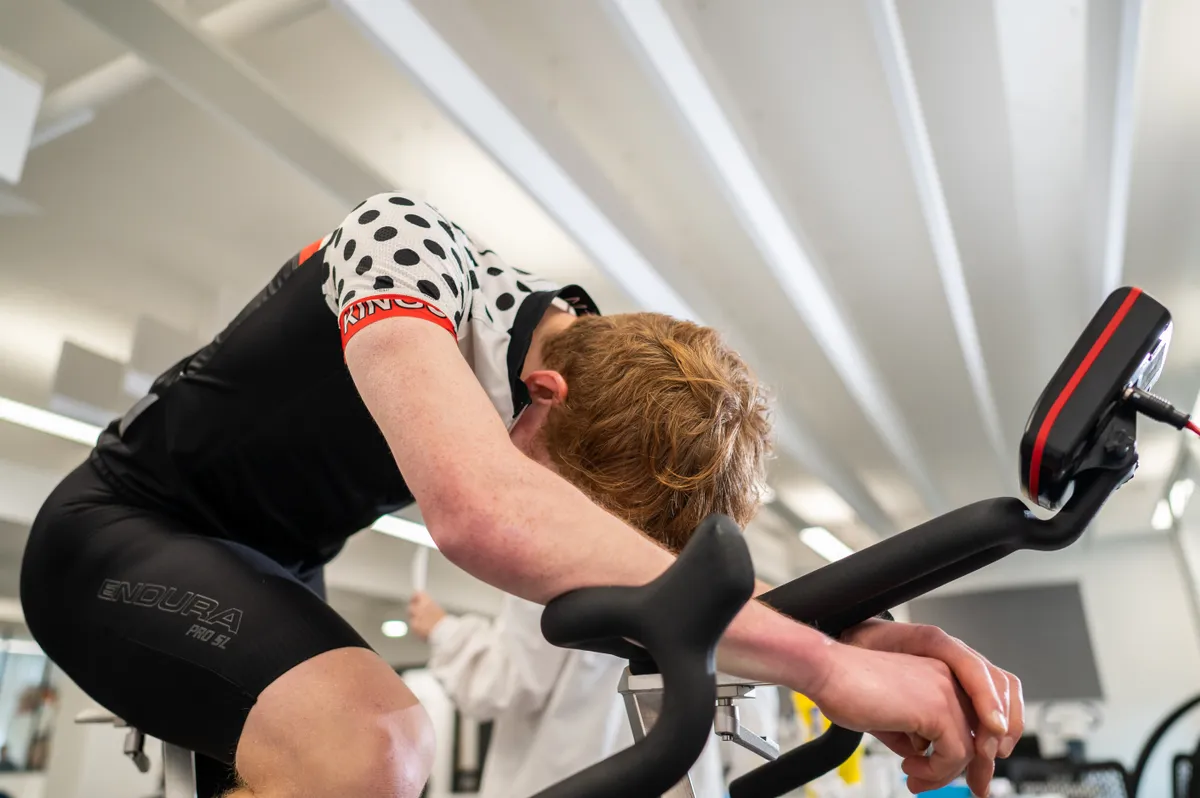
An alternative VO2 max session Clinton sometimes prescribes to more experienced cyclists is Tabata.
These high-intensity intervals are so gruelling, you might not need an hour for the workout.
By the end of each four-minute set of 20 seconds on, 10 seconds off, you should be almost falling off your bike, says Clinton.
The 20-seconds ‘on’ should be near maximal effort – aim to hit 170 per cent of your FTP.
- Warm up with 15 minutes' zone 1-2 spinning
- Do 3x 4 minutes, comprising 20 seconds at 170% FTP and 10 seconds’ recovery
- Spin for 10 minutes at Z1 to recovery between sets
- Cool down with 15 minutes' easy riding
4. Sprint for the line
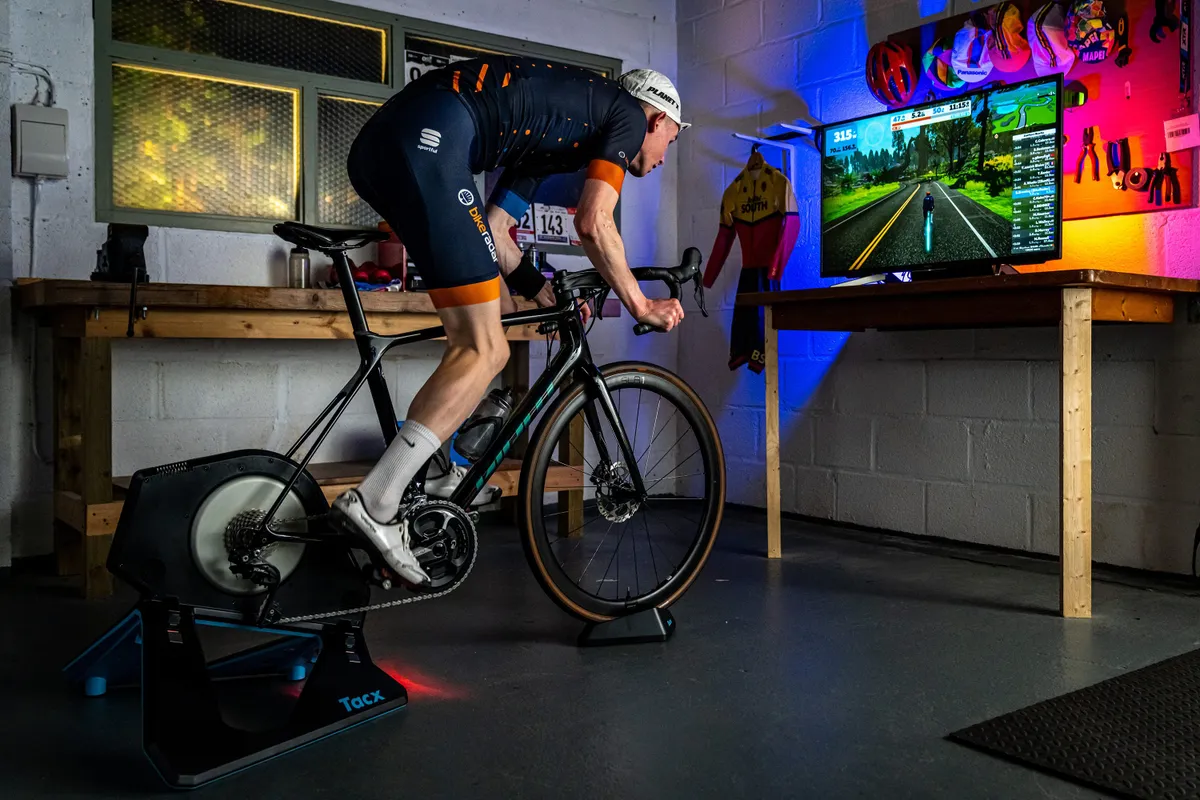
The third session Clinton recommends is designed to improve your sprinting.
This aspect of road cycling training isn’t just important for racers.
Anyone who rides in a group or takes part in punchy off-road disciplines, such as cyclocross or cross-country mountain biking, will gain from developing their explosivity.
Sprints are impractical to do to heart rate due to the delayed response to effort and difficult to do to power because you’ll struggle to read your watts on your bike computer.
Instead, perform the sprint at what feels like a maximal effort, starting in a fairly big gear.
- Warm up with 15 minutes’ zone 1-2 spinning including optional, short efforts above threshold
- Ride for 30 minutes at zone 2 and sprint for 30 seconds every five minutes
- Cool down with 15 minutes of gentle riding
